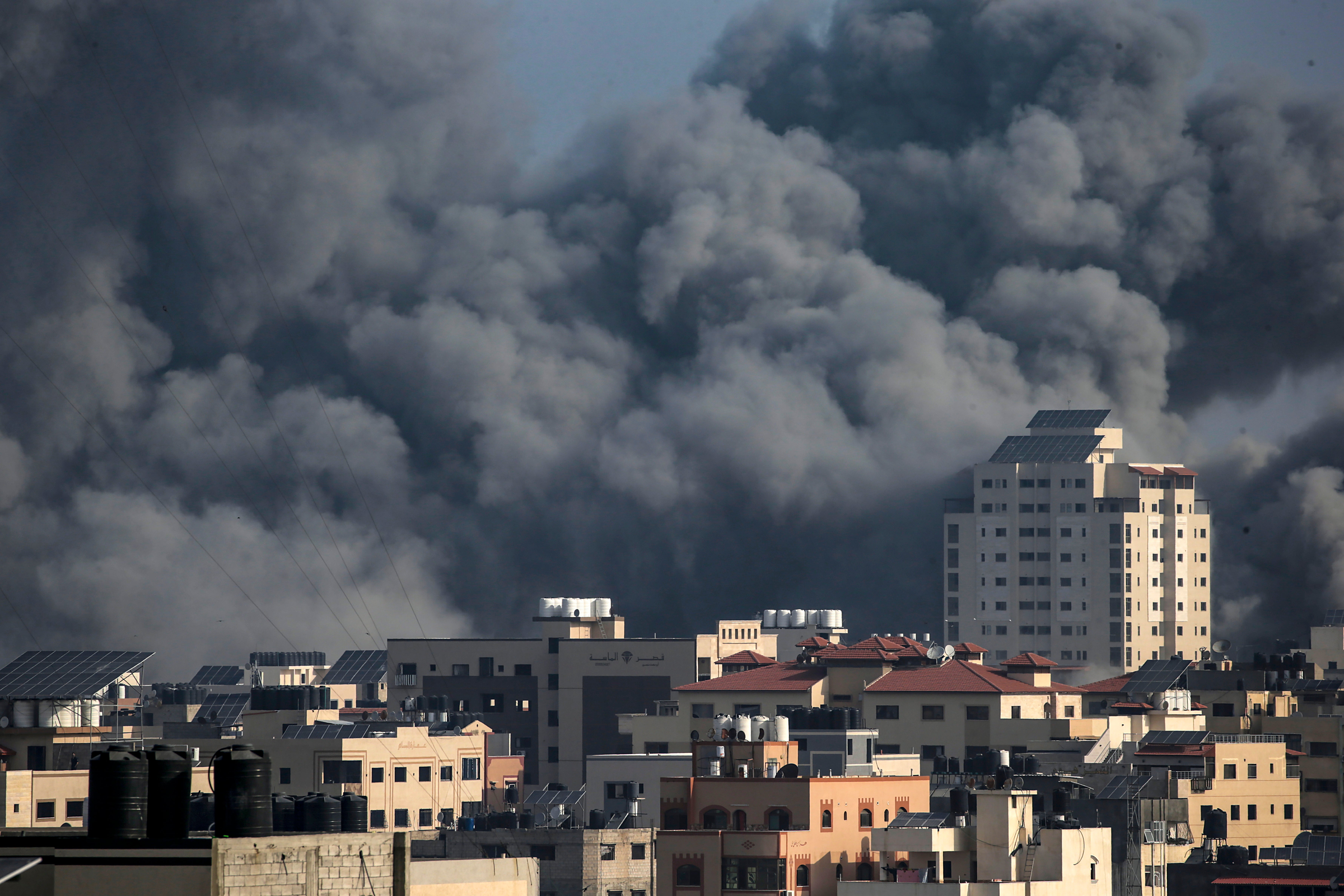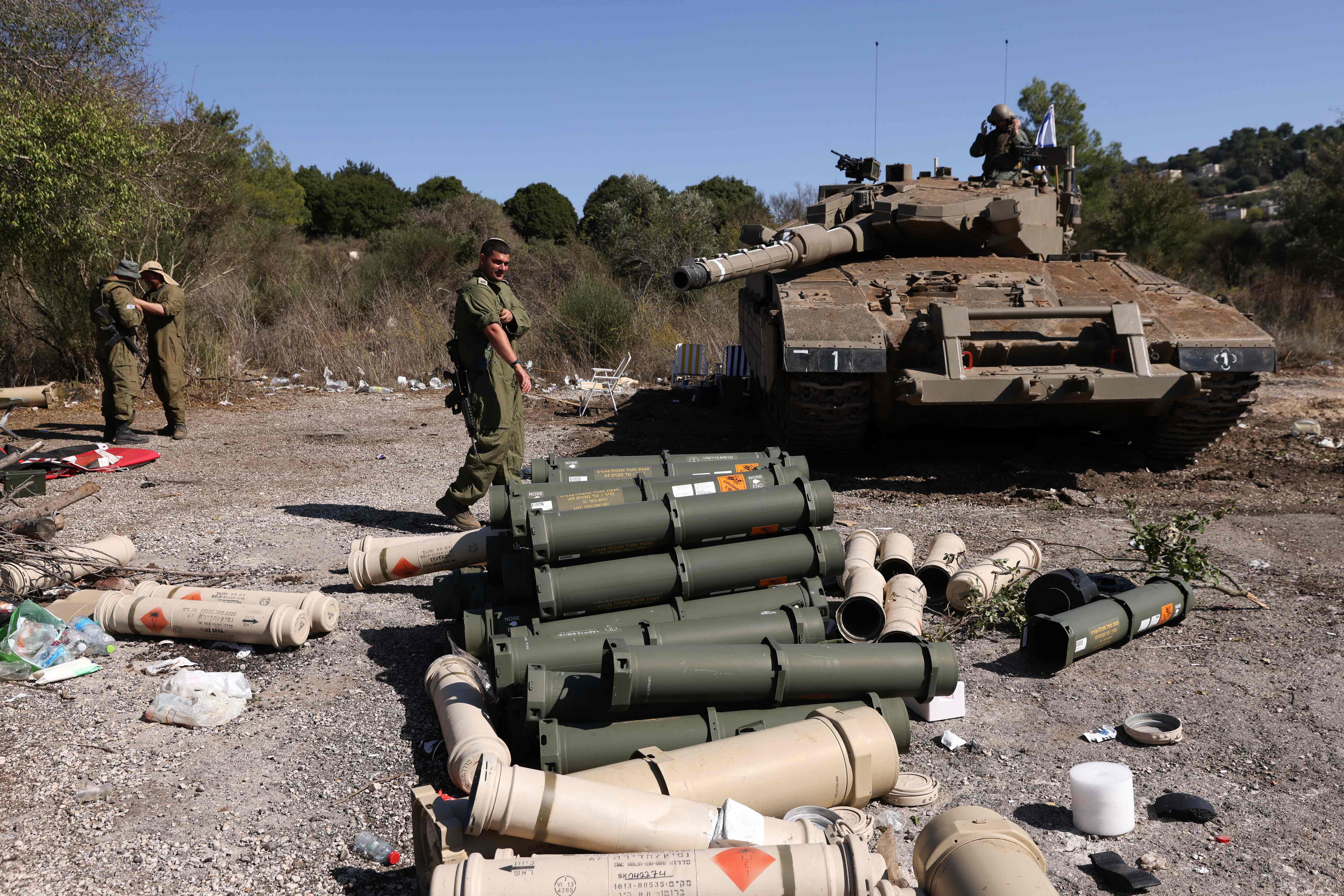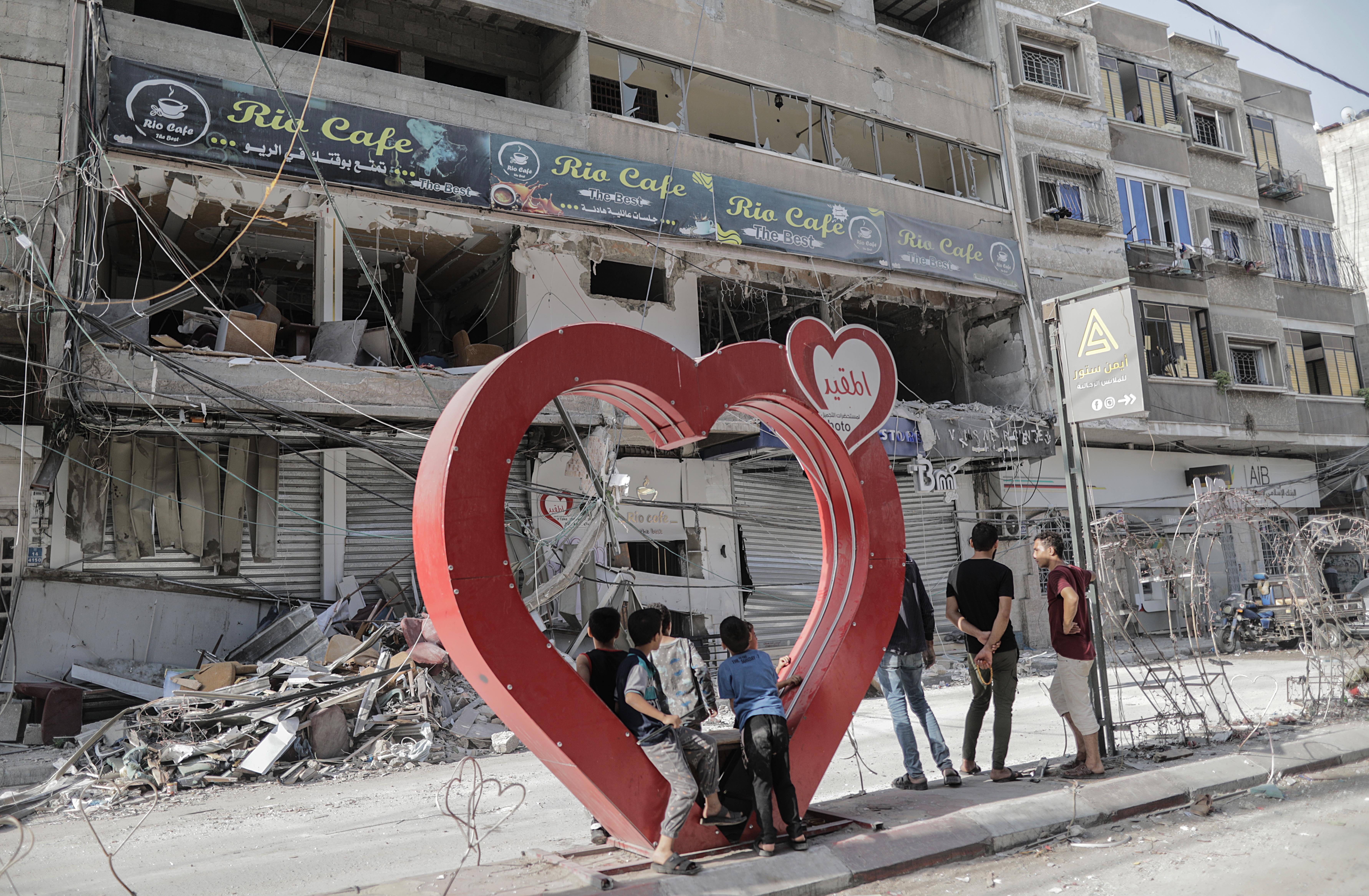Israel strikes on Gaza intensify as WHO warns 130 premature babies at ‘grave risk’ as fuel runs out
Residents of Gaza told The Independent that air raids had never been so heavy and supplies are running out
Your support helps us to tell the story
From reproductive rights to climate change to Big Tech, The Independent is on the ground when the story is developing. Whether it's investigating the financials of Elon Musk's pro-Trump PAC or producing our latest documentary, 'The A Word', which shines a light on the American women fighting for reproductive rights, we know how important it is to parse out the facts from the messaging.
At such a critical moment in US history, we need reporters on the ground. Your donation allows us to keep sending journalists to speak to both sides of the story.
The Independent is trusted by Americans across the entire political spectrum. And unlike many other quality news outlets, we choose not to lock Americans out of our reporting and analysis with paywalls. We believe quality journalism should be available to everyone, paid for by those who can afford it.
Your support makes all the difference.The World Health Organisation (WHO) has warned that 130 premature babies and 1,000 kidney patients in Gaza are at “grave risk” as the fuel needed to power dialysis and incubators runs out.
Israel’s military spokesperson, Rear Admiral Daniel Hagari, warned that Israel planned to “intensify” its strikes on Gaza in order to “minimise the risk to troops in the next stages of the war”, which it is widely anticipated will involve a ground invasion.
Cross-border fire between Israel and militant groups in Lebanon has also increased, and Israel has struck two airports in Syria, as the two-week war with Hamas threatened to spiral into a broader regional conflict. Residents of Gaza told The Independent that the air raids had never been so heavy and that supplies were quickly running out.
Israel has launched a fierce bombardment and imposed a “total siege” on the 42km-long enclave, which is home to more than 2 million people, after Hamas militants launched a bloody attack on 7 October killing over 1,400 Israelis and taking hundreds of people, including British citizens, hostage.

According to WHO, at least 4,385 Palestinians have been killed in the strikes. The Hamas-run health ministry says that more than 1,700 of them were children. The WHO said it now fears that many more will die from injuries and preventable illnesses, as food, water and medicines run out.
On Sunday, a convoy of 17 trucks packed with aid attempted to cross into besieged Gaza. But witnesses said that as the trucks crossed the border, a blast was heard in the vicinity. Israel later said that one of its tanks had accidentally fired and hit an Egyptian position close to the border.
Although Sunday’s attempted convoy was successful, and Saturday saw 20 trucks carrying aid enter Gaza via Rafah, the UN has warned that the supplies reaching the enclave are “a drop in the ocean”.
The convoy contained food, water and medical supplies, but Israel has so far not permitted fuel to be delivered. The UN’s Palestinian refugee agency UNRWA said on Sunday that this meant the stocks of fuel that are “critical for [the] humanitarian response” would run out in three days.
“Without fuel, there will be no water, no functioning hospitals and bakeries. Without fuel, aid will not reach many civilians in desperate need. Without fuel, there will be no humanitarian assistance,” it added.

The WHO said that 130 premature infants and 1,000 patients dependent on dialysis, as well as patients in intensive care units across the besieged enclave, will die if no fuel is found to power incubators, ventilators and dialysis machines.
Doctors in Gaza told The Independent they were having to improvise as supplies were running out, including using shop-bought vinegar to disinfect wounds, conducting surgeries without anaesthetic, and treating burns patients without dressings.
On Sunday, the Hamas-run Gaza health ministry once again issued a plea to petrol stations to immediately donate their fuel to hospitals to keep them running.
The WHO said on Sunday that 65 per cent of primary care facilities and 20 per cent of hospitals have had to stop operating because of Israel’s bombardment.
Israel has ramped up attacks on Gaza ahead of an anticipated ground incursion into the strip, and ordered Palestinian civilians in northern Gaza – including those in hospitals – to evacuate to the south.

The WHO has said this demand is impossible, and UN experts say it could amount to the war crime of forcible transfer.
Residents who have stayed in Gaza City, in the north of the strip, told The Independent that Israel had dropped more leaflets on Saturday warning people that if they did not move to the south, they “might be identified as accomplices of a terrorist organisation”. The residents shared images of the leaflets.
This has raised further concerns about further violations of international law if civilians are targeted for failing to evacuate.
The Israeli military did not deny they had sent the leaflets in a statement to The Independent, but added that “the translation from Arabic that has spread online is imprecise” without specifying which part of the translation was wrong.
“We clarify that the IDF [Israeli army] has no intention to consider those who have not evacuated from the affected area of fighting as a member of the terrorist group. The IDF treats civilians as such, and does not target them,” the statement read.

“In order to minimise civilian harm, the IDF sent a request to the residents of the northern area of the Gaza Strip to evacuate southward of Wadi Gaza.”
There are concerns that the two-week war with Gaza is fast becoming a regional conflict. Israeli prime minister Benjamin Netanyahu visited troops stationed near the border with Lebanon and warned Hezbollah it would be making “the mistake of its life” if it entered the war.
In the Israeli-occupied West Bank, officials said they had struck a mosque compound in Jenin belonging to Hamas and Islamic Jihad militants who had carried out several attacks in recent months and were planning another one. Two people were reported to have been killed in the strike.
So far the Palestinian health ministry has said that in total, 91 Palestinians have been killed in clashes with Israeli troops and in arrest raids and attacks by Jewish settlers since the 7 October attacks. Israeli forces have closed crossings into the territory and checkpoints between cities, measures they say are aimed at preventing attacks. Israel says it has arrested more than 700 Palestinians, including 480 suspected Hamas members.
Join our commenting forum
Join thought-provoking conversations, follow other Independent readers and see their replies
0Comments